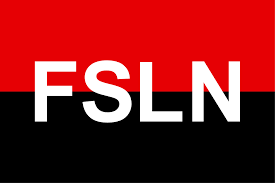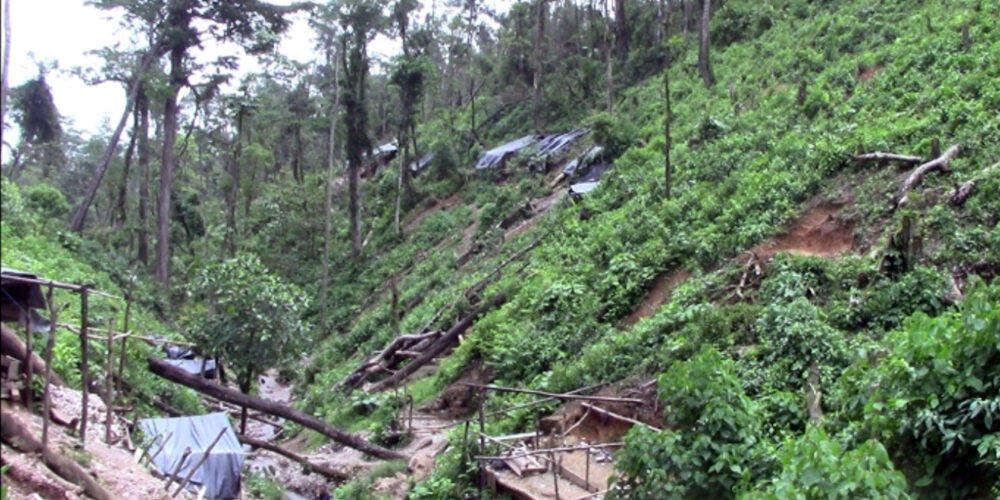Nicaragua is a country with some 40,000 Indigenous families, who benefit from the region’s most ambitious system of decentralised Indigenous government. Three hundred Indigenous communities legally own approximately a third of Nicaragua’s national territory.
Within four years of returning to power in January 2007, President Daniel Ortega’s Sandinista government had granted Nicaragua’s Indigenous and Afro-descendant peoples a title to fifteen territories, covering more than 2 million hectares.
The largest tropical rainforest reserve in Central America, Bosawás, includes seven territories belonging to Mayangna and Miskitu Indigenous groups. Under autonomous government, Indigenous peoples participate actively in decisions relating to the protection of this environment. Land in these territories is held communally and cannot be sold, only leased.
However, there is a long history of mestizo settlers (called colonos) moving into the territories, a process that accelerated under neoliberal governments in power from 1990 until 2007. From January 2007 the new government worked to mitigate the continuing adverse effects while also consolidating the region’s autonomous administration. In fact most mestizo settlers are accepted by the Indigenous and Afro-descendant communities and live alongside them.
Despite that generally stable context, some mestizo settlers occupy land illegally. Most disputes over land are resolved peacefully, but there is a history of occasionally violent conflict, with some thirty-seven Indigenous deaths in the six years to 2020 reported by international organisations, which invariably omit other deaths of mestizo people resulting from attacks by Indigenous groups. Guillermo Rodriguez of the Center for Justice and International Law has admitted that “it’s a really complex situation. In some places, 90 per cent of the current inhabitants are colonos.”
Regrettably, local and international NGOs ignore such complexities. They also fail to abide by basic reporting norms, making little effort to corroborate information they receive from local sources, seldom comparing reported incidents with other versions of events and rarely seeking genuinely independent verification. While other countries have bona fide representative organisations (e.g. in Honduras, COPINH’s defence of Lenca communities and OFRANEH’s reporting on attacks against Garifuna people), in Nicaragua elected Indigenous leaders reject the incompetence and biased reporting by local foreign-financed NGOs, finding them to be neither representative nor impartial.

The UN system and other international institutions seem almost invariably to accept the reports of international NGOs as if they were presented by impartial interlocutors, which, in the case of Nicaragua, categorically they are not. In doing so, such organisations fail the majority of Indigenous and Afro-descendant people in Nicaragua by misrepresenting the problems they face and by propagating falsehoods about the causes of any violence. They disregard the views and experience of Indigenous community leaders themselves, who are given no voice in these debates (as, for example, when the Inter-American Commission on Human Rights holds hearings without inviting local elected Indigenous leaders, such as the one on 18 March 2021).
At both the local and the international level, NGOs exploit the occasional violent incidents in Nicaragua’s autonomous Caribbean Coast regions, using them in effect as ideological propaganda against Nicaragua’s socialist government. Here are four recent examples:
An incident in Kiwakumbai on 23 August of this year led to nine deaths and two women being raped. The Oakland Institute, together with the Nicaraguan NGOs CALPI,CEJUDHCAN, and Fundación del Río, claimed that “settlers massacred at least eleven members of the Indigenous Miskitu and Mayangna peoples living in the Bosawás Biosphere Reserve.” In fact there were no settlers involved: the victims, who were Mayangna, Miskitu and other people operating an artisanal goldmine, were attacked by a group composed mainly of other Indigenous people in a dispute over profits from the mine. This was an intracommunal conflict.
On 16 February 2020, according to CEJUDHCAN, a young girl in the Miskitu community of Santa Clara was shot in the face in a settler attack, an allegation repeated by the Oakland Institute. The girl’s injury was actually due to a domestic firearm accident, as community leaders later confirmed. Settler attacks giving cause for concern have indeed occurred in Santa Clara and nearby Wisconsin, but as a result of illicit land sales by other local Miskitu community leaders to mestizo families.
On 29 January 2020 twelve houses in the Mayangna community of Alal were burnt down by colonos and two people injured. The Oakland Institute’s report, “Nicaragua’s Failed Revolution,” wrongly claimed that there were four deaths. This was repeated in a statement by the UN Human Rights Commissioner on 7 February. In fact the violence was a revenge attack by “colonos” to whom some Mayangna people from Alal had illegally sold land. The attack targeted the houses only of those people involved in the sale, apparently because they wanted to illicitly resell the same land to other buyers.
More widely, in 2020 the Oakland Institute and CEJUDHCAN launched a completely spurious and baseless campaign to portray Nicaraguan beef exports as “conflict beef” coming from disputed Indigenous territories, ignoring the protective mechanisms which the government has put in place and which meet stringent international norms.
Recently, the United Nations Human Rights Council received a letter signed by many of the organisations listed above, falsely accusing the Nicaraguan government of “negligence . . . and impunity in the face of the recurrent attacks against Indigenous and Afro-descendant peoples in the North Caribbean Coast Autonomous Region with the aim of widespread land-grab.”
The letter repeats the incorrect version of the incident in Kiwakumbai on 23 August and is based on a statement by Amaru Ruiz of the NGO Fundación del Río, who has himself now been charged by Nicaragua’s authorities with deliberately publishing false information and provoking communal hatred.
Several of the organisations have condemned the Nicaraguan government in the most extreme terms, accusing it of “ethnocide” and labelling Nicaragua “the most dangerous country for environmental defenders.” One body warns sensationally of the “complete disappearance” of Indigenous peoples, when the overall population of the Miskitu and Mayangna peoples alone number some 180,000 and 30,000, respectively.
The letter’s completely distorted picture ignores the interlinked problems of the remoteness of the areas, the extreme difficulty in policing them, and the culpability of some members of Indigenous communities involved in illicit land sales. In the worst neocolonial style, these NGOs idealise all Indigenous people as environmental and human rights defenders when, naturally, this is not always the case. They dismiss the Nicaraguan government’s continuing efforts to resolve land disputes, omit the role of autonomous regional, territorial and communal governments, and ignore far-reaching improvements brought by the government to the social and economic wellbeing of Indigenous peoples.
We therefore call on the United Nations Human Rights Council to reject the accusations in the letter from the sixteen organisations. We also call on the international NGOs concerned to act in good faith when reporting on Nicaragua in the future. At the very least, we urge them to abide by basic reporting norms so as to investigate and corroborate far more thoroughly claims about the situation of Indigenous peoples of the kind made by the Oakland Institute and by the Nicaraguan NGOs CALPI, CEJUDHCAN, and Fundación del Río. We demand that all these organisations desist from making exaggerated, misinformed and categorically false criticisms of Nicaragua’s treatment of its Indigenous peoples.
Signed by the following organisations:
ÃBACOenRed
Alliance for Global Justice
Anti-imperialist Working Class Platform (PCOA), Ireland
Australia Solidarity with Latin America
Black Alliance for Peace
Casa Baltimore Limay
Casa del Agua
Chicago ALBA Solidarity
Cindy Sheehan’s Soapbox
Communist Party of Ireland
Community Organizing Center
Friends of the Congo
Friends of Latin America
Friendship Office of the Americas
Genesee Valley Citizens for Peace
Give Ye Them to Eat
Global Network Against Weapons and Nuclear Power in Space
International Action Center
Marxist Think Tank
Network in Defence of Humanity (REDH), Irish Chapter
Nicaragua Solidarity, Ireland
Nicaragua Solidarity Campaign
Nicaragua Solidarity Campaign Action Group
Ode to Earth / Echoes of Silence
Orinoco Tribune
Pan-African Roots
Popular Resistance
Rights Action
Sustainable Orphanages for Haitian Youth
Task Force on the Americas
Venezuela-Ireland Network
Veterans for Peace, Linus Pauling Chapter 132
Victor Jara Siempre Canta
Women Against Military Madness






